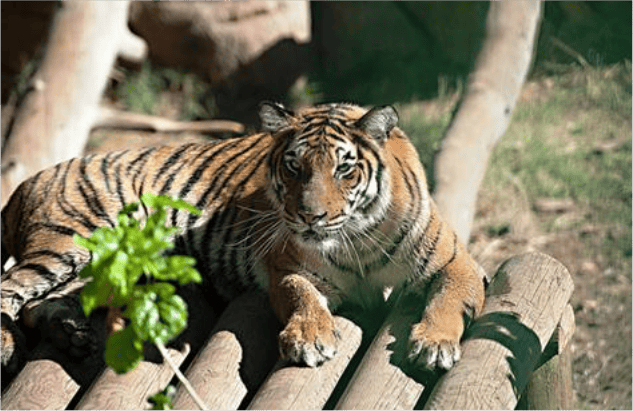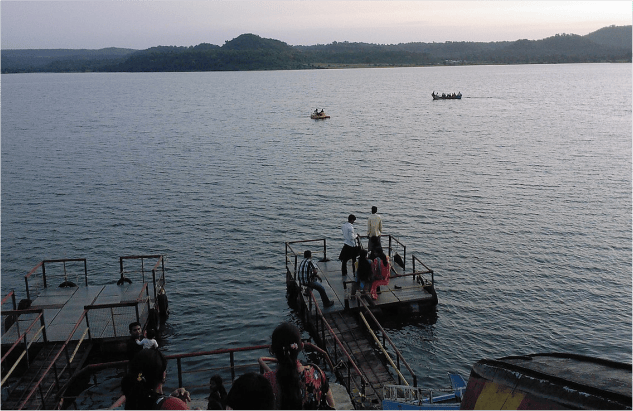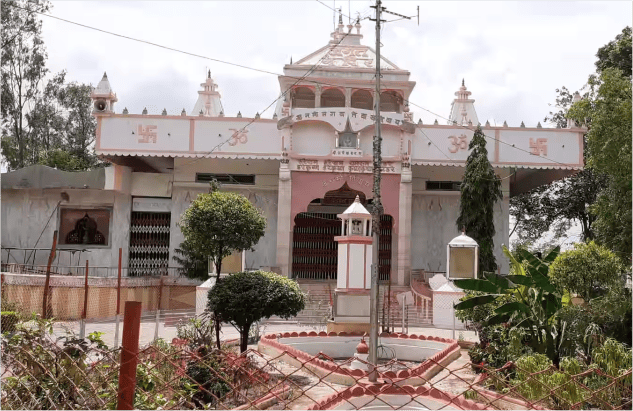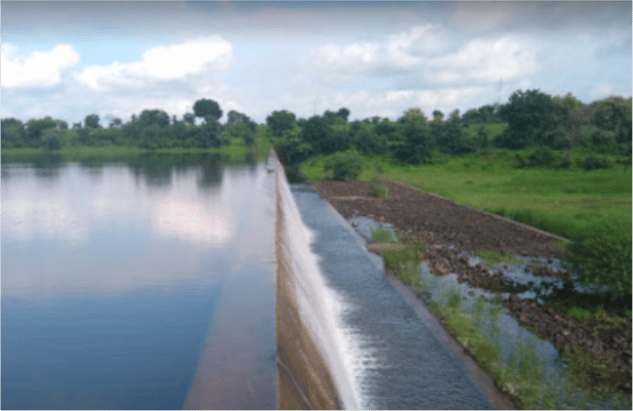Yavatmal
Introduction to Yawatmal District
Yavatmal, situated in northeastern Maharashtra, India, serves as the administrative center of Yavatmal District. Its name originates from the Marathi words “Yavat,” meaning mountain, and “Mal,” meaning row, signifying its location amidst a series of hills.
For over a thousand years, Yavatmal has been a sought-after city, with various empires and regional powers vying for control. This dynamic history has contributed to a rich cultural heritage, with architectural landmarks left behind by different dynasties. The district is also home to some of India’s oldest tribal communities, enhancing its cultural diversity. While Marathi is the primary language, tribal languages like Gormati, Banjari, Gondi, Marwari, and Sindhi are also spoken.
Economically, Yavatmal plays a crucial role in agriculture, earning the title “Cotton City” due to its extensive cotton production. It also supports industries such as cotton-ginning and pressing and is home to major establishments like the Raymond UCO mill.
Culturally, Yavatmal is known for its vibrant Navratri celebrations and other festivals like Gudi Padwa, Diwali, Dussehra, Christmas, and Easter. The local Buddhist community also marks Ambedkar Jayanti with significant gatherings. Blending history, culture, and economic importance, Yavatmal is a city where tradition and modernity thrive together.
The History of Yawatmal
The history of Yavatmal dates back to the Mauryan period when it was part of the Berar region under Emperor Ashoka’s rule. During this time, the Mauryan Empire was at its peak, and Yavatmal thrived as a significant territory. However, after Ashoka’s reign, the city gained independence and soon became a target for successive regional kingdoms.
Over the centuries, Yavatmal saw numerous rulers, passing through the hands of the Bahmani Sultanate and later the Ahmednagar Sultanate before ultimately falling under Mughal rule. The Mughals governed the city until the time of Aurangzeb, their last great emperor. Following a brief period of Maratha rule, Yavatmal came under British control in 1853. Remarkably, despite the widespread uprisings during the 1857 revolt, civil life in Yavatmal remained largely undisturbed.
After India gained independence in 1947, Yavatmal became a part of Maharashtra, evolving into a vibrant city. Today, it is known for its educational institutions, which are shaping a new generation of students in a rapidly advancing, technology-driven world. The city continues to grow while preserving its rich historical legacy, making it an important center in Maharashtra’s Vidarbha region.
Top Tourist Attractions in Yawatmal
Yavatmal is home to a variety of tourist destinations, including historical temples, scenic spots, and wildlife sanctuaries. Here are some of the must-visit places in the district:
Religious Sites
- Chintamani Temple
Also known as Shri Chintamani Temple, this sacred site is dedicated to Lord Ganesha. Devotees believe that worshiping here removes worries and suffering. An annual fair is held to honor Lord Ganesha, attracting thousands of visitors. Private taxis provide convenient access to the temple. - Jagat Temple
Situated in the Umarsara area, Jagat Temple is an important religious site dedicated to Lord Vishnu. The temple is considered highly sacred, and devotees from all over visit to seek blessings. Taxis, autos, and buses are readily available to reach this destination. - Khojochi Mosque
An ancient and significant religious site for Muslim devotees, Khojochi Mosque is a testament to the deep-rooted faith of the local community. Large congregational prayers are regularly held here. The mosque is easily accessible by buses, taxis, and autos. - Rangnath Swami Temple
Dedicated to Shri Rangnath Swami, this temple is a revered pilgrimage site. Thousands of devotees visit every year to seek blessings. Both private taxis and buses are available to reach the temple. - Kedareshvar Temple
This ancient Hemadpanthi-style temple is dedicated to Lord Shiva and is believed to be over 1,100 years old. Located in the heart of Yavatmal, the temple features exquisite architecture, including a beautifully designed entrance, a large linga symbol, and a Nandi structure. The sabha mandap inside the temple was built in 1915, adding to its historical significance.
Natural Wonders
- Tipeshwar Wildlife Sanctuary
One of Yavatmal’s most famous tourist spots, Tipeshwar Wildlife Sanctuary spans 148.63 square kilometers. The sanctuary is home to a wide range of wildlife, including tigers, panthers, wild boars, bison, deer, and antelopes. Due to deforestation and excessive use of natural resources, conservation efforts are in place to protect the sanctuary’s ecosystem. - Painganga Wildlife Sanctuary
One of Maharashtra’s most popular sanctuaries, Painganga is home to diverse wildlife, including tigers, cheetahs, bears, nilgai, sambars, jackals, and langurs. The sanctuary is spread over a vast area of undulating terrain and is managed by the Forest Department of India. - Jamwadi
A haven for nature lovers, Jamwadi is located 12 km from Yavatmal and is close to Boregaon Dam. The area is known for its scenic beauty and houses a temple dedicated to Lord Shiva. - Boregaon Dam (Rajhans Paryatan Sthal)
Located just 5 km from the city center, Boregaon Dam is a popular picnic and recreational spot. It offers activities like boating, slides, swings, and other amusement rides, making it a favorite among families and children. The serene surroundings have also made it a preferred hangout spot for couples.
Other Attractions
- Prerna Sthal
Built in memory of Jawaharlal Darda, a renowned freedom fighter, Prerna Sthal is one of Yavatmal’s notable landmarks. Spread over 80,000 square feet, the site is surrounded by tall teak trees, adding to its charm and serenity.
Best Time to Visit
| Factor | Details |
| Ideal Travel Period | October to February (Cooler weather, perfect for outdoor activities) |
| Weather Conditions | Summers are very hot; monsoon (July-September) brings heavy rainfall, making travel difficult. |
| Best Time for Wildlife Viewing | October to February offers the best chance to spot animals at Tipeshwar Wildlife Sanctuary. |
| Festival Experience | Navratri (Durga Puja) is celebrated with great enthusiasm, making it a great time to witness local culture. |
Why Yawatmal Should Be on Your Travel Bucket List
Yavatmal, located in northeastern Maharashtra, is a city rich in history, culture, and natural beauty. Known as the “Cotton City,” Yavatmal plays a vital role in India’s cotton industry while embracing its deep-rooted traditions.
The city has religious landmarks like Chintamani Temple and Kedareshvar Temple, alongside serene natural wildlife attractions such as Tipeshwar Wildlife Sanctuary and Boregaon Dam. Additionally, Yavatmal’s vibrant Navratri celebrations and diverse tribal heritage add to its unique charm.
Whether you’re a history enthusiast, nature lover, or cultural explorer, Yavatmal offers a blend of ancient heritage and modern progress, making it a must-visit destination in Maharashtra.
Travel Essentials
Here are the travel essentials one should know
Top Attractions
Discover the beauty and culture of Maharashtra through our curated experiences

Tourist spots in Yavatmal
Buldhana district are various religious tourism sites. In the Buldhana district, the Hanuman idol is one of the important religious tourist places. In the Buldhana district, there is a Hanuman idol at Nandura. In here, there is a statue of Lord Hanuman with the height of 105 feet. This idol attracts a lot of local tourists and foreign tourists to the Buldhana district.

Boregaon Dam
Buldhana district are various religious tourism sites. In the Buldhana district, the Hanuman idol is one of the important religious tourist places. In the Buldhana district, there is a Hanuman idol at Nandura. In here, there is a statue of Lord Hanuman with the height of 105 feet. This idol attracts a lot of local tourists and foreign tourists to the Buldhana district.

Chintamani Temple
Buldhana district are various religious tourism sites. In the Buldhana district, the Hanuman idol is one of the important religious tourist places. In the Buldhana district, there is a Hanuman idol at Nandura. In here, there is a statue of Lord Hanuman with the height of 105 feet. This idol attracts a lot of local tourists and foreign tourists to the Buldhana district.

Jagat TempleJamwadi
Buldhana district are various religious tourism sites. In the Buldhana district, the Hanuman idol is one of the important religious tourist places. In the Buldhana district, there is a Hanuman idol at Nandura. In here, there is a statue of Lord Hanuman with the height of 105 feet. This idol attracts a lot of local tourists and foreign tourists to the Buldhana district.

Painganga Sanctuary
Jamwadi is a place full of natural beauty. It is 12 km away from the city and close to Boregaon Dam. Buldhana district are various religious tourism sites. In the Buldhana district, the Hanuman idol is one of the important religious tourist places. In the Buldhana district, there is a Hanuman idol at Nandura. In here, there is a statue of Lord Hanuman with the height of 105 feet. This idol attracts a lot of local tourists and foreign tourists to the Buldhana district.

Tipeshwar Wildlife Sanctuary
It is one of the most popular sanctuaries of Maharashtra. The region is mostly low undulating terrain separated by a wide valley. Buldhana district are various religious tourism sites. In the Buldhana district, the Hanuman idol is one of the important religious tourist places. In the Buldhana district, there is a Hanuman idol at Nandura. In here, there is a statue of Lord Hanuman with the height of 105 feet. This idol attracts a lot of local tourists and foreign tourists to the Buldhana district.

Mahadev Temple
Buldhana district are various religious tourism sites. In the Buldhana district, the Hanuman idol is one of the important religious tourist places. In the Buldhana district, there is a Hanuman idol at Nandura. In here, there is a statue of Lord Hanuman with the height of 105 feet. This idol attracts a lot of local tourists and foreign tourists to the Buldhana district.


